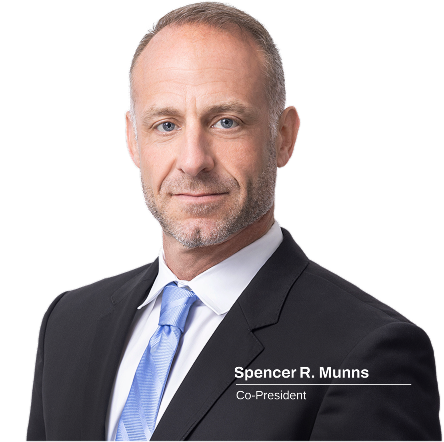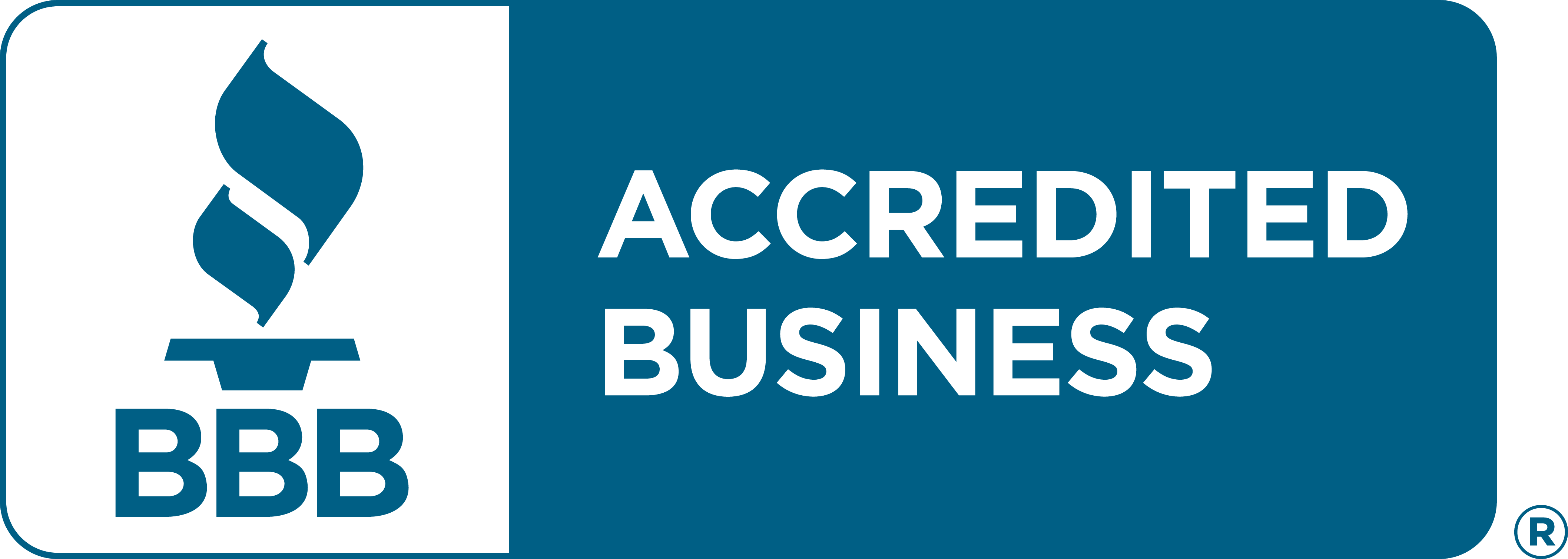If you are not a United States citizen, you will need a work visa to remain in the U.S. and maintain a job. There are different visa types designated for different work situations, so the process can be very confusing.
A work visa lawyer in Orlando from Bogin, Munns & Munns can help you cut through the red tape and get you on the right path. Our immigration lawyers in Orlando understand the laws and stay current on changes that can affect your request.
We take the time to ensure that your forms are completed correctly and submitted in time to meet deadlines. Our attorneys can explain each step so you always understand what is happening.
Obtaining an Orlando Work Visa
One of the first things most people consider is the visa cost. These rates are set by the United States Citizenship and Immigration Services (USCIS). The base fee for a non-immigrant work visa may be accompanied by additional fees depending on your circumstances.
To ensure you know the latest payment requirements, our Orlando work visa lawyer keeps track of the fees for your application process and their deadlines. Our Central Florida immigration team is up to date on all requirements and can guide you through the immigration process.
How Long Does the Process Take?
The processing time depends on individual circumstances, so there is no set time frame. Work visa applications may sometimes be processed and approved within as little as one week, while others may take several months.
To make this waiting period less worrisome for you, an immigration lawyer can monitor the progress of your application. They will provide updates and fill any gaps in your application that are slowing down the processing time.
What an Orlando Work Visa Lawyer Does for You
When you partner with our immigration team, we will do the following:
- Prepare necessary documentation based on your circumstances and needs
- Track deadlines for submitting documents and supporting information
- Represent you in hearings or immigration court
- Appeal the decision if your application is denied or delayed
- Submit a new application if your particular denial can’t be appealed
- Explain rules and regulations
- Keep you updated on the progress of your application
- Prepare you for interviews if required
- Answer questions you have about the process
Our entire team understands the challenges you are facing. You are never alone with our Orlando work visa lawyers on your side.
Applications and Requirements for Work Visas
Knowing which application to fill out and where to submit it can be overwhelming. That is why it is beneficial to have an Orlando work visa attorney help you navigate the maze.
Although there are some exceptions, the following are general requirements:
- A current job offer or letter of intent from a U.S. employer
- A job within the group of eligible industries
- The necessary education or background within that field
- Proof that your stay in the U.S. is temporary and that you will return to your native country when your work visa expires
There are differing filing forms, rules, and documentation needed depending on whether you are already in the U.S., entering the U.S., and whether you plan to stay permanently.
An experienced immigration lawyer can help you figure out what makes sense for your situation and what documentation you need to apply for the type of visa you are looking for.
It is helpful to have an Orlando work visa attorney assisting you to ensure that you file the correct forms and documentation on time. Our team can explain any confusing parts of the process and help you with all immigration matters.
Our Orlando Work Visa Lawyers Explain the Different Types of Available Visas
There are roughly 140,000 employment-based green cards available each year for qualified workers and their families. Becoming a permanent resident requires meeting eligibility criteria through education, expertise, and job offer verification.
Most categories require labor certification from the Department of Labor, confirming there are insufficient U.S. workers for the position and that the hiring will not displace an American. Five main employment types exist:
EB-1
The EB–1 visa is reserved for individuals with extraordinary ability in the sciences, arts, education, business, or athletics. These applicants must show sustained national or international acclaim, such as awards, published work, or professional recognition. The EB-1 category also includes outstanding professors and researchers, as well as multinational executives and managers who have been employed abroad by a qualifying company for at least one year.
One of the major advantages of the EB-1 visa is that it does not require labor certification, meaning applicants do not need proof that no qualified U.S. worker is available for the position.
Family members, including spouses and unmarried children under 21, may also apply for derivative visas, allowing them to join or accompany the main applicant.
Our EB-1 work visa lawyers in Orlando can help you determine if this is the right visa for you.
EB-2
The EB-2 visa is intended for professionals who hold advanced degrees or possess exceptional ability in their field. To qualify under the advanced degree option, an applicant must have at least a master’s degree or a bachelor’s degree plus five years of progressive experience in their profession. Those claiming exceptional ability must show a “degree of expertise significantly above that ordinarily encountered in their field.”
Most EB-2 applicants require a job offer and labor certification from the Department of Labor. However, in certain cases, the applicant can request a National Interest Waiver (NIW), which allows them to bypass both the job offer and the certification if their work benefits the United States as a whole. This category is particularly attractive for scientists, researchers, doctors, and entrepreneurs contributing to the national good.
Our Orlando EB-2 work visa lawyers can help you apply for this type of work visa.
EB-3
The EB–3 visa covers skilled workers, professionals, and certain other workers. Skilled workers are individuals whose jobs require at least two years of training or experience, while professionals must hold at least a bachelor’s degree. The “other workers” category refers to unskilled laborers performing jobs that require less than two years of training or experience.
This category is more accessible to a wider range of applicants but is often subject to long waiting periods because of high demand. Labor certification is mandatory for all EB-3 applicants, as is a valid job offer from a U.S. employer.
Our EB-3 work visa lawyers in Orlando can determine if this is the best option for you.
EB-4
The EB–4 visa is designed for what are known as “special immigrants.” This group includes religious workers such as ministers and missionaries, certain retired employees of international organizations, U.S. government employees stationed abroad, members of the U.S. Armed Forces, and specific broadcasters working for international media entities.
Unlike most employment-based categories, the EB-4 does not require labor certification. Because it targets very specific roles, the number of applicants tends to be smaller, and processing can be faster.
Our Orlando EB-4 work visa lawyers can help determine if the “special immigrant” visa is right for you.
EB-5
The EB–5 visa, often referred to as the “investor visa,” allows foreign nationals to obtain permanent residency by investing in the U.S. economy. To qualify, an investor must commit at least $1,050,000 in a new commercial enterprise or $800,000 if the investment is in a targeted employment area, which is typically a rural region or one with high unemployment.
The investment must also create or preserve at least ten full-time jobs for U.S. workers. This visa does not require labor certification or a job offer. The EB-5 program is particularly popular among entrepreneurs seeking both U.S. residency and a business foothold in the country.
Our EB-5 work visa lawyers in Orlando will help determine if you qualify for the investor visa.
In summary, there are set employment-based immigration pathways and types available each year for qualified foreign workers to gain permanent residence along with eligible families, once requirements are satisfied.
Temporary Nonimmigrant Visa
The first step you must take is to have your prospective employer fill out Form I-129, Petition for a Nonimmigrant Worker. Once completed, USCIS must approve it. Once Form I-129 is approved, your application for a temporary work visa can be submitted to the appropriate embassy or consulate.
Determining what is best for your situation can be confusing. An Orlando immigration lawyer will help you assess your needs and file with the appropriate agency.
H Visas
H-series are specific to skilled trades and non-agricultural jobs. The H-1B helps bring skilled laborers to the United States. H-2Bs are for temporary non-agricultural jobs that may be seasonal.
The H–1B visa is the most well-known of these. It allows U.S. employers to hire foreign professionals in “specialty occupations” that require theoretical or technical expertise, such as engineering, computer science, or medicine.
Applicants must hold at least a bachelor’s degree or its equivalent, and employers must demonstrate that hiring the foreign worker will not negatively impact similarly employed U.S. workers. H-1B status is typically granted for three years and can be renewed for up to six years in total.
Although temporary, the H-1B allows what’s known as “dual intent,” meaning that holders can pursue permanent residency while still in H-1B status.
We can help you determine if you are eligible for an H-1 visa.
I Visas
The I visa is intended for representatives of foreign media, including journalists, film crews, editors, and similar professionals who work for organizations headquartered outside the United States.
Per the U.S. Department of State, holders of I visas can enter the country to engage in legitimate media-related work such as reporting, filming, or producing content. The visa is usually valid for the duration of the assignment and can be renewed as needed.
We can help determine if you qualify.
O Visas
O–1 visas are for individuals who display extraordinary ability in business, science, art, education, athletics, television, or motion pictures. Applicants must provide extensive evidence of recognition in their field, such as major awards, critical acclaim, or a history of notable accomplishments.
O-1 visas require a U.S. employer or agent to sponsor the applicant and are typically granted for the duration of a specific event, project, or employment term.
Our team can determine whether the O visa is right for you.
P Visas
The P visa category serves athletes, entertainers, and performance groups recognized internationally. The P–1A visa applies to individual athletes or teams competing at an internationally recognized level, including professional sports leagues or major events like the Olympics.
The P–1B visa, on the other hand, is for members of internationally acclaimed entertainment groups. Both categories may extend to essential support staff such as coaches, trainers, or technicians. These visas are typically tied to specific performances or seasons, and while temporary, they allow for repeat renewals as long as the athlete or artist remains active in their profession.
Other Services We Can Help You With
We help with all types of immigration procedures and provide the services you need to manage the complicated immigration and naturalization process.
Our immigration law office offers complete immigration solutions, including:
- K-1 visas/fiancé visas
- Citizenship applications
- Temporary visas
- Business visas
- Family visas
- Individual visas
- Marriage visas
- Defense against deportation
Get Help from a Work Visa Lawyer in Orlando at Our Firm
Don’t try to handle the U.S. Citizenship and Immigration Service without obtaining legal advice from a professional. The Orlando work visa attorneys at Bogin, Munns & Munns have provided legal services in the immigration field for many years. We stay on top of changes to requirements and can guide you on your journey to obtaining legal status for employment in the U.S.
We can help with any immigration issue, including helping defend you during removal proceedings.
Contact the immigration team at Bogin, Munns & Munns for more information on employment-based immigrant matters.







